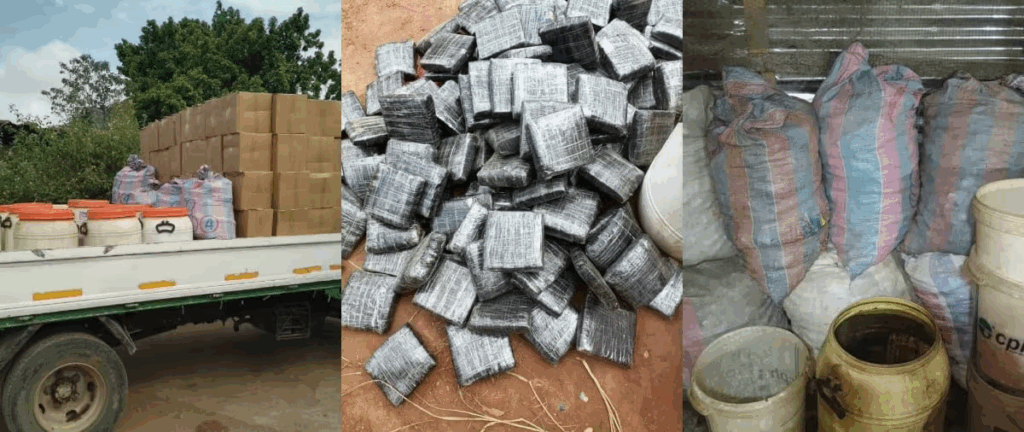President of the Ghana PhD Cohort, Prince Bansah, has boldly spoken out on the escalating crisis confronting Ghanaian government-sponsored students in the United Kingdom, describing the situation as deeply distressing, worsening daily, and now jeopardising Ghana’s diplomatic standing.
Speaking on Joy FM’s Super Morning Show, Mr Bansah emphasised, “The reality on the ground is far more egregious than those snippets suggest — our colleagues have suffered beyond what words can capture.”
“Currently, stipends owed range from 8 to 36 months. Some students have not received a single payment in 36 months. For PhD candidates who have been here the full duration of three years, this means they have received nothing.”
He further revealed that even the universities have not been reimbursed to cover tuition.
“Let me clarify, the new registrar, in April, amid student protest threats, came to the UK in early May and engaged with investors. They reached an agreement to begin repaying debts, especially at the University of Birmingham, where they committed to paying about 10% of what they owed. The registrar also met with larger student groups and assured them that stipends would start being paid by the end of May.”
However, Mr Bansah expressed disappointment over the registrar’s return to Ghana, which was marked by a “very scathing media engagement” that “did not clearly communicate the purpose of his visit”.
He added, “That is the current standstill. We have tried repeatedly to contact officials here, but many students say their emails go unanswered.”
The situation is nothing short of excruciating.
Many students have been evicted and now rely on food banks.
“Anyone who has studied abroad understands that in the UK, hunger is a solitary battle — you can’t simply knock on a neighbour’s door like you might in Ghana. When you’re sick here, it’s only you and your God.”
Mr Bansah highlighted the devastating mental toll: “As I speak, some colleagues are battling depression, drowning in debt, and trapped by these conditions. I can attest personally, recently, while writing my final thesis, after delivering a speech, it seemed I had ‘gone off the board.’”
He disclosed that a well-being investigation linked his condition to nearly 20 months without stipends.
“The wellbeing officer informed me this would be escalated to the British Commons. They intended to contact my local Member of Parliament.”
“This is because Ghanaian authorities have refused to address the issue. It needs diplomatic escalation as a human rights concern,” he stressed.
Mr Bansah confirmed receiving an email from his MP last week requesting further details to raise the matter in the British Parliament.
“This is how serious and public this has become — and it threatens Ghana’s diplomatic reputation.”
He recalled some students were withdrawn last year, and he, along with others able to help, sheltered a few. “But we cannot sustain support for most colleagues. The crisis is dire.”
Echoing concerns from fellow students, he described how some male students are forced into menial jobs like “making spends” — slang for casual labour.
“These are harsh realities. At first, I thought the issue might be exaggerated, but flyers advertising such work circulated among Masters and Undergraduates confirm it. If male students are pushed to this, imagine what female students, especially PhDs, endure.”
He explained the unique challenges for PhD candidates: “The PhD journey demands humility and dedication. We avoid publicising this burden to protect our mental health, but we have no choice.”
Unlike master’s and undergraduate students on summer break who can work legally, PhD students have no breaks and work relentlessly.
“This morning, I’m in my office writing pages of my thesis — far beyond the 20 hours per week UK visa rules allow.”
He continued, “You can’t freely seek work either, as employers prefer permanent staff or full commitments. No one wants to hire someone for only 20 hours weekly.”
Mr Bansah called this predicament “huge and heartbreaking”.
“It pains me when people politicise or trivialise this issue. The calibre of students sponsored is well-known, transcending all political divides. Our PhD group numbers just over 80.”
“This is neither a political nor a partisan matter. It’s a grave crisis impacting students’ mental health and Ghana’s international relations.”
He concluded with an urgent appeal: “We understand this is a new government and it’s unfair to fault them for a legacy problem. But we plead for immediate and decisive action.”
Background
The ongoing crisis facing Ghanaian government-sponsored students abroad has escalated to alarming levels.
Many scholars are experiencing prolonged non-payment of stipends and tuition fees, severely affecting their academic progress and well-being.
At the University of Memphis, students have endured a full year without tuition payments from the Ghana Scholarship Secretariat (GSS), despite existing formal agreements under a Memorandum of Understanding (MOU) aimed at supporting their education and enabling them to contribute to national development upon return.
Similarly, in the United Kingdom, students have not received stipends for periods ranging from 8 to 26 months, with tuition fees unpaid for over two academic years. The total debt owed to these students and their institutions is estimated to exceed £39 million.
This financial neglect has resulted in dire consequences, including threats of eviction, exclusion from academic programmes, and the looming risk of deportation.
The situation has been further complicated by conflicting public statements from GSS officials, particularly the Registrar, whose remarks have contradicted earlier commitments made directly to the students.
These developments have sparked urgent demands for government accountability and swift intervention to address the crisis.
The affected students emphasise that their education is not merely a personal endeavour but a critical investment in Ghana’s future.


